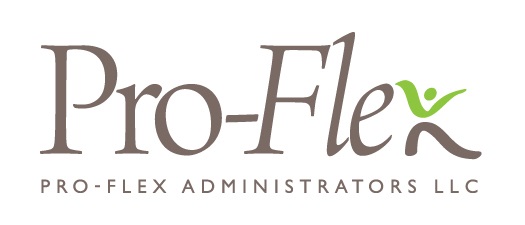September 2014
Welcome to September! Businesses may be getting back into the full swing of activity after enjoying a leisurely summer break and utilizing the last quarter of the year to meet goals and objectives. Employees who may have participated in a compressed work week may now be returning to a more traditional schedule. Regardless of your organization’s circumstances, it is likely that you will be experiencing some workplace changes and adjustments as we transition from summer to autumn this month.
HR Alerts
Congress takes a mandated recess each August. As a result, there are often very few end-of-summer legislative alerts. Enjoy this downtime, since the alerts tend to increase in the fall and winter as new legislation goes into effect.
“Can I Bring My Bible to Work?” Religious Accommodations in the Workplace
We all know that Title VII of the Civil Rights Act prohibits discrimination based on a job applicant’s or employee’s religion. However, did you know that federal Equal Employment Opportunity (EEO) laws also require employers to provide workplace accommodations to employees with sincerely held religious beliefs?
So what is an employer to do when an employee asks for Sundays off to worship, or rest breaks twice daily for prayer?
The law requires an employer to reasonably accommodate an employee’s religious beliefs or practices, unless doing so would cause “more than a minimal burden” on the operations of the business. Therefore, the organization is statutorily required to make reasonable adjustments to the work environment that will allow employees to practice and adhere to their religious beliefs.
That leaves many employers wondering how to evaluate such requests. Here are a few questions that should be considered when evaluating a request for religious accommodation:
Would accommodating the request require more than minimal business costs?
Would approving the request substantially diminish productivity and/or efficiency?
Would accommodating the request pose a safety exposure or threat to the employee or others?
Would approving the request result in placing an undue and significant burden on other employees?
If you answer “yes” to any of these questions, you are most likely not required to accommodate the request. However, it is essential to thoroughly consider these questions in good faith and document the concrete reasons demonstrating how accommodation of the request would place more than a minimal burden on business operations.
While the law only requires an employer to make religious workplace accommodations upon request, in an effort to support diversity initiatives in the workplace there are some proactive best practices that an organization can take. For example, we often recommend that employers provide a limited number of “floating holidays” within the organization’s holiday policy. Floating holidays allow employees to enjoy income replacement when observing religious holidays.
Another proactive measure for employers is to offer foods in company cafeterias or at company events that meet various religion-based dietary needs. Employees observing religious practices by abstaining from specific foods are likely to appreciate such consideration of their dietary restrictions. Furthermore, employees generally welcome the freedom to be able to wear or display religious symbols at work.
It is critically important to provide training to your supervisory and managerial team so they recognize religious accommodation requests and have a strategy for responding in a manner that is not construed as being insensitive or discriminatory in nature. Supervisory-level employees charged with enforcing the company’s policies with respect to dress code, work schedules, and break times must be cognizant that, on occasion, the organization will be obligated to make exceptions to these policies in order to effectively provide for religious variations.
Last year, individuals filed almost 4,000 EEOC charges against organizations across the county for religious-based discrimination claims. The key to remaining outside of that statistic is to ensure your management team is not discriminating against individuals based on closely held religious beliefs and offering reasonable workplace accommodations to those who request them based on religion.
Question & Answer
Q: An employee will be out for up to 6 weeks for a medical reason and has requested a leave of absence. Should the employee fill out FMLA paperwork as they were injured at a second job? How should we proceed?
A: If your company has 50 or more employees, the employee will most likely be eligible for FMLA leave. Offering FMLA is a statutory requirement when an employee has a serious health condition that will preclude them from working. To be eligible, they must have been employed with the company for at least 12 months and worked at least 1,250 hours in the last 12 months immediately preceding the leave request. If the employee meets all of these eligibility requirements, you are required to offer an FMLA leave of absence of up to 12 weeks.
FML is an unpaid but protected leave. The company is required to continue the employee’s benefits during this leave. The company must continue to pay its portion of the regular benefits premium, and the employee will need to remit payment for their regular portion of the benefit premiums in order to continue health insurance coverage. The company will be required to restore the employee to the same or an equivalent role once the employee has been medically released to return to work.
Background Checks-When do they Cross the Line
Employers have become well-attuned to the importance of selecting job candidates that are qualified and will fit well with the organization’s culture. Prior to extending an offer of employment to a viable candidate, best practices in conducting a background check are to use a variety of methods to assess skills, verify professional experience, and to check in with a candidate’s references.
Some employers opt to use a third-party consumer reporting services to assist with reference checking and securing consumer reports, such as criminal background checks, education verification checks, and motor vehicle reports. This practice is compliant with the Fair Credit Reporting Act (FCRA) as long as the employer discloses to the applicant, in writing, that the report may be obtained for employment-related purposes. Such a disclosure must be made on a consent form that is separate from the employment application. Once the applicant’s consent is obtained in writing, the employer may obtain this report.
Should an organization opt to disqualify a candidate based on the results of a consumer report, the employer is required to follow an “adverse action procedure,” which includes sending the candidate a pre-adverse action notice, a copy of the consumer report, a final adverse action notice and a summary of rights under the FCRA.
The EEOC has established guidance for employers with respect to the use of criminal history information. The guidance disallows employers from basing hiring decisions on an applicant’s arrest record; rather, the conviction record is the only criteria that may be used in this regard.
The EEOC further requires that all background checks be “job-related” and “consistent with business necessity.” For example, it is reasonable for a financial sector employer to conduct a credit history check on a job candidate. There are generally three factors that an employer may take into consideration when determining if the criminal conviction meets this burden:
Nature and gravity of the offense
Time elapsed since the conviction or completion of a sentence
Nature of the position sought
Employers must use extreme caution when basing an employment decision on an employee’s credit score or history. While the federal law allows employers to use an applicant’s credit history in the employment application process as long as doing so is job-related and consistent with business necessity, ten states currently have adapted limitations on the use of credit information for employment selection purposes:
California
Colorado
Connecticut
Hawaii
Illinois
Maryland
Nevada
Oregon
Vermont
Washington
Federal law does not prohibit employers from inquiring about criminal convictions on an employment application. However, ten states have passed legislation disallowing employers from asking about criminal convictions on job applications; also known as “ban the box”:
California
Hawaii
New Jersey
Colorado
Connecticut
Massachusetts
Maryland
Minnesota
New Mexico
Rhode Island
Ultimately, an employer should assess the specific role for which it is hiring and the relevance of an individual’s criminal or credit history information in making its employment selections. This will aid in determining the necessity for conducting the background checks on specific roles that are engaged in working with the public, with vulnerable populations or with sensitive, proprietary information. Specifically, employers in the banking and financial services industry as well as those who work with young children, the elderly or individuals with disabilities are strongly urged to implement a background check in their hiring process. Offers of employment should be contingent to the results of background checks; thus, if any disqualifying information appears on a candidate’s background check, the employer will easily be able to negate the preliminary offer of employment. The candidate will have the right to dispute the accuracy of the background check information by directly contacting the consumer agency; this right should be communicated to a candidate in order to ensure that employment background checks comply with the FCRA.

